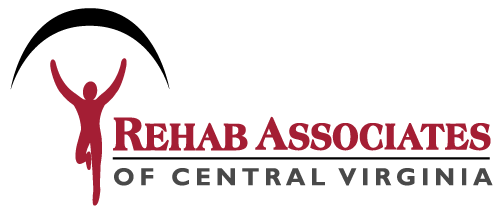
By: Dr. Hope Trent
Technology has inched its way into every aspect of the healthcare field, some good and some not quite as good. But in the area of physical therapy, technology has given us remote therapeutic monitoring or RTM. With this important development, physical therapists are able to provide care that’s more effective, more accessible, and more patient centered.
What is Remote Therapeutic Monitoring?
RTM is a health monitoring system that allows physical therapists to track progress as their patients adhere to prescribed exercises, all done remotely. This system bridges the gap between in-person visits and at-home care. Best of all, this innovative approach improves the effectiveness of treatment plans and also enhances patient engagement and satisfaction. Basically, RTM enables a physical therapist to keep an eye on the patient’s exercise routine so that it fits into his or her treatment plan and, thus, results in better outcomes for the patient.
How Does RTM Work?

Remote therapeutic monitoring is beneficial for patients of all ages.
Remote therapeutic monitoring utilizes digital tools to collect data on a patient’s progress and activities outside the clinic. Patients utilize an app that captures metrics such as range of motion, strength, pain and activity levels, as well as adherence to home exercise programs. These tools then transmit the data to the physical therapist (PT) in real-time, allowing the PT to adjust treatment plans, and provide feedback. Best of all, our providers can address any issues right away so that future problems don’t arise. RTM is particularly important in physical therapy because a patient’s compliance with a home program is critical to recovery. Self-reporting is often inconsistent or inaccurate. RTM provides objective, measurable data, which gives physical therapists a clear understanding of the patient’s progress.
The Benefits of RTM for those in Physical Therapy
- Improved patient outcomes. If a patient isn’t responding to treatment as quickly as needed, the physical therapist can intervene by modifying exercises prior to the in-clinic visit. By being proactive, the physical therapist is able to drive better patient outcomes.
- Better patient engagement. When patients have an active role in their treatment plan, they are more likely to follow through and adhere to their plans. In fact, they often enjoy their home exercise plan even more when they are tracking their progress.
- Accessibility and convenience. RTM makes physical therapy more accessible for patients between clinic visits.
- Personalized care. The data collected gives physical therapists a complete understanding of their patient’s progress. RTM results in a personalized treatment plan that improves its effectiveness.

Remote therapeutic monitoring bridges the gap between at-home care and in-clinic visits.
When is RTM Used?
Remote therapeutic monitoring is used in a variety of physical therapy settings:
- Post-surgical rehabilitation. Enhancing the rehab, RTM gives an extra boost to patients who are working toward complete recovery.
- Recovering from injury. School athletes or weekend warriors can use RTM to ensure safe and effective progress and to reduce the risk of further injury.
- Chronic pain management. RTM helps track pain levels and identify triggers to ensure that physical therapists are appropriately managing pain.
- Geriatric treatment. Our older population can benefit from RTM by receiving consistent monitoring and support so that they perform exercises correctly and avoid injuries. The app we use at Rehab Associates is patient-friendly and uses a secure portal that is easy to access.
How Do I Get Started with RTM?
Remote therapeutic monitoring is used to enhance current treatment plans, so if you’re in physical therapy at Rehab Associates, please let your physical therapist know you’re interested in RTM. If you think you need physical therapy for an issue or to avoid an issue, please give us a call today at 855-722-8478. Let us know that RTM is something you feel would benefit your treatment plan.

Dr. Hope Trent
Dr. Hope Trent is a regional clinical leader and site director at our Monelison clinic. She enjoys general orthopedics with an emphasis on functional fitness, manual therapy, and geriatrics. Outside of the clinic, Hope enjoys spending time outdoors with her family, lifting weights, and reading.
For more information about Rehab Associates, please visit our website at https://racva.com/

